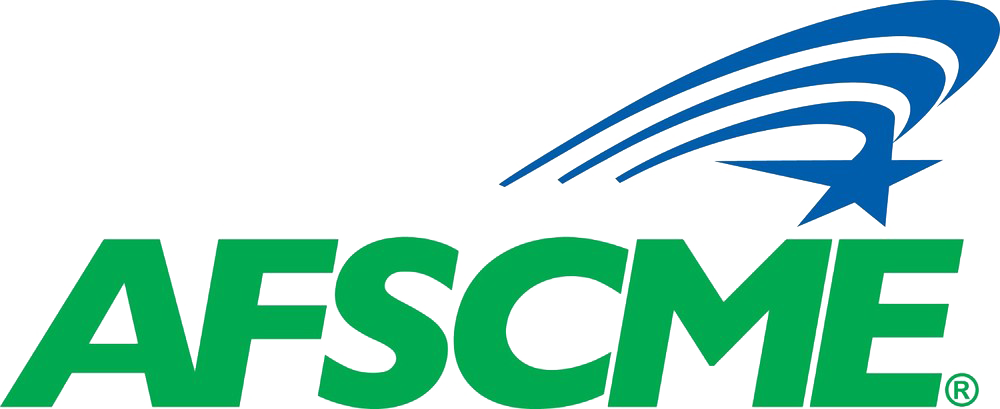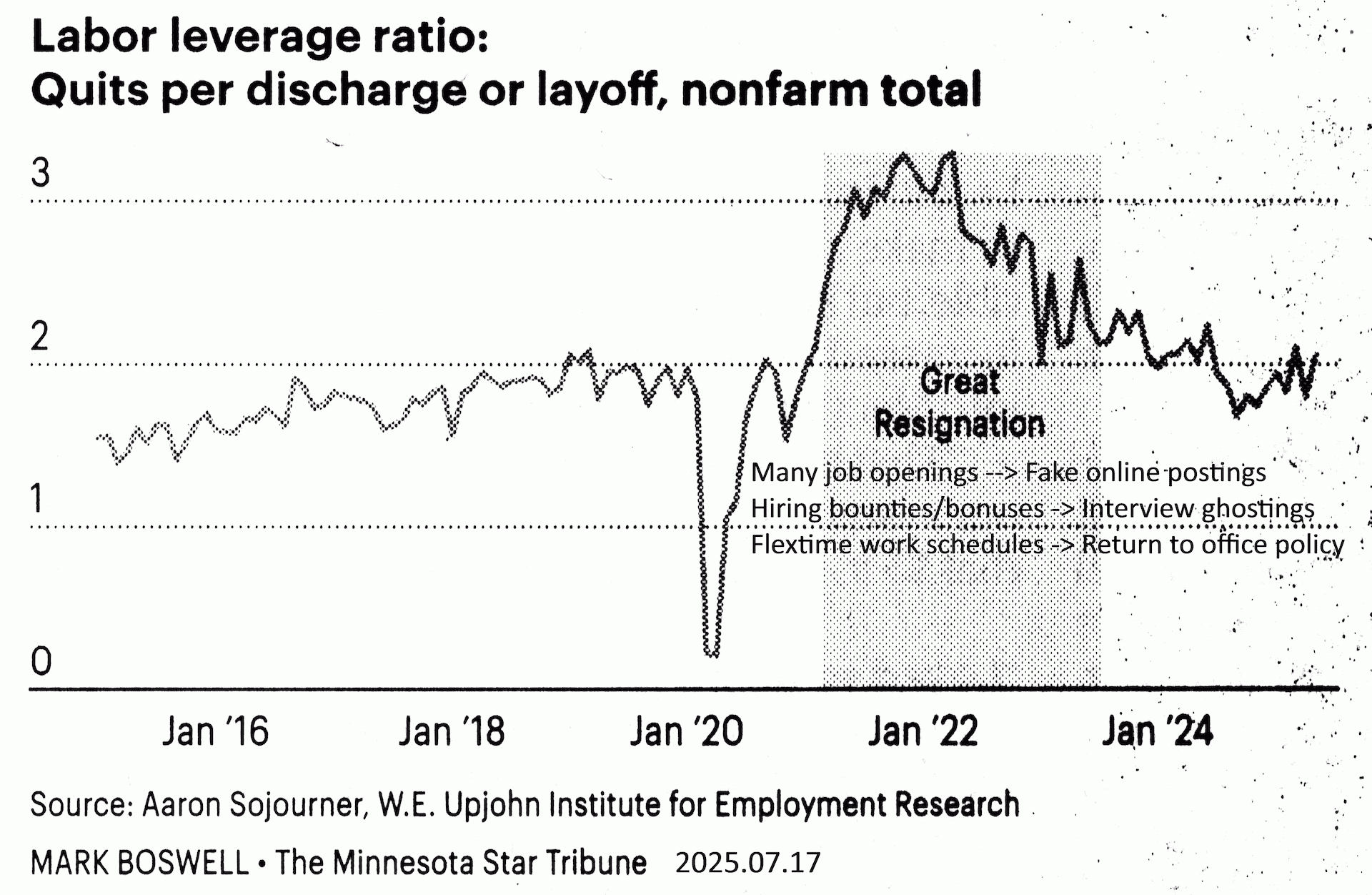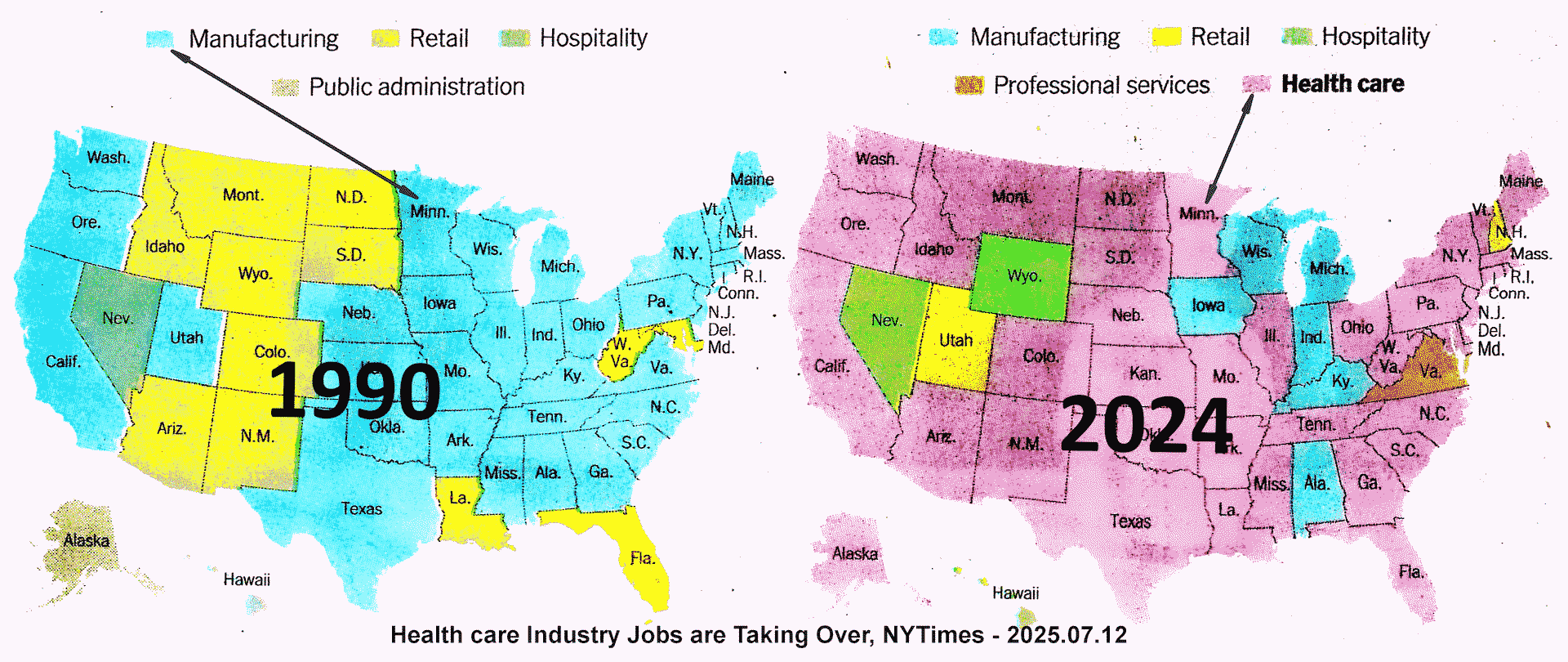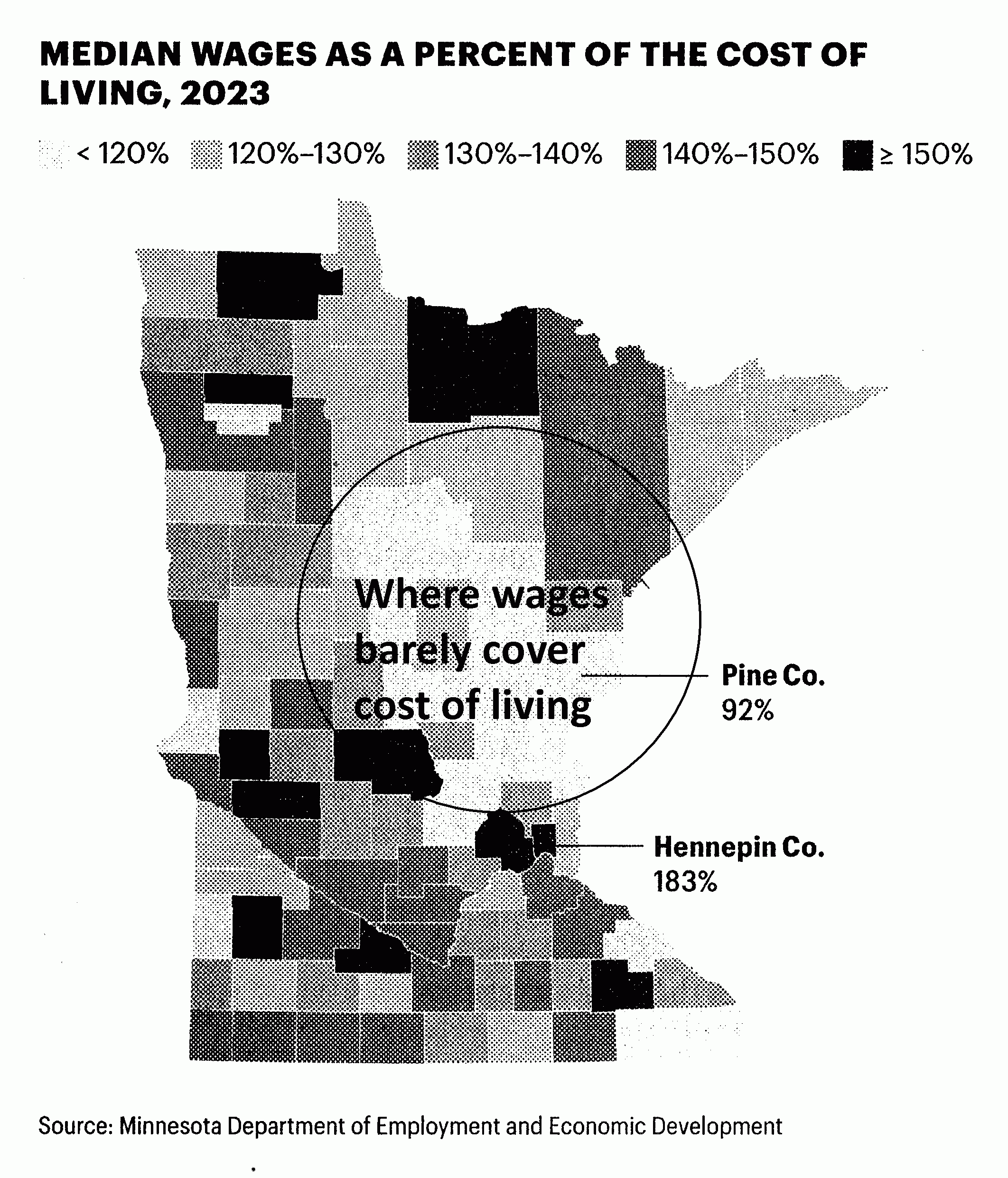2026-2027 Tentative Agreement vote announced
Refer to Council 5 Memberlink for voting details: ways, times and places, printed bulletins are being posted.
During negotiations, the Council petitioned membership regarding the usual cheap shot, which is what raises under 2% in this current TA amount to considering inflating consumer prices are expected to rise far above 3% once U.S. import tariffs get fully imposed starting in August. But August is a long way off.
It appears this is a time of demographic apocalypse, when there are too many old people and too few young people, so one might expect unprecedented nation-wide health insurance demand, premium bloating and cost shifting. To say the least, for many their autum years are proving to not be halcyon days as expect. And for younger persons? In many cases, their future isn't even close to a slam dunk to comfortable prosperity.
When time comes to vote, AFSCME's negotiators recommended 2-to-1 accepting typical, normal-sized raises (for state workers, in AFSCME, historically under 2% per year) -- or reject then hang in limbo a while, let nature take its course, while waiting and watching to see how long an unpaid strike, if there is one, might last.
In 2025, there's no denying that factory and manufacturing jobs are fewer, that non-AI or non-tech work comes up less often, that high-skill openings are not getting applied for at lackluster wages being offered. Robo-automation, including vehicles, plus the age demographic, have made what labor is needed now less industrial factory floor, more medical nursing and health care.
Check out map below, since 2009 entire country has slanted to reflect gerontocracy, which is older people everywhere, running things their way as they will soon to outnumber the young 4 to1. State of Minnesota public service at MnDOT is not just some rusty bucketed and threadbare highway maintenance operation, highway workers do care that in Minnesota, troopers and others necessary to keep this state's highways running and safe, across the board there is less pay than in the surrounding region.
There is today more, not less, deadly mortal risk doing any job directly facing the public. And not just on the open highways. Public employment - sounds risky, but reflect a moment. Have you personally risked your life to save someone you do not know as something required and expected doing your job?
When one risk's valuing empathy as a moral motive, and one feels every life is precious, even among those those who do not flunk at the care thing, these days even the most conscientious and tireless public servant, nurse or doctor might end up attacked or shot dead without warning - for no reason that makes sense! Nurses, doctors, first responders, peace officers - not just MnDOT plowing highways, but all who track inventory, do maintenance work for public thoroughfares, are in some way caring for others or enforcing laws intended to keep people safe.
Do the workers able to 'enjoy' remote work get a better shot at raising their families? Is that advantage unfair? Do better families matter, or not? Don't be too quick to answer that. Would you start a family for only $5000, not enough to cover childcare? Not every working parent has gratis grandparent childcare, retired aunts and uncles, on tap. Decisions about working conditions, or pay and insurance benefits, need to be made with members’ voices and consent at a proper negotiation table to be mutually agreed on to become acceptable, respectful changes in contractual workplace terms and conditions.
AFSCME Council 5 Executive Director Bart Andersen said:
"Let me be perfectly clear: as Executive Director of AFSCME Council 5, representing more than 18,000 state employees, we will not tolerate unilateral changes to our members’ work. The Administration’s decision to impose sweeping workplace policy changes without engaging our union and labor partners first is not just unacceptable—it’s an act of blatant disrespect. Our union members must have and deserve a seat at the table every step of the way. We are demanding full transparency and meaningful dialogue immediately. AFSCME Council 5, alongside our fellow labor union partners, will do whatever it takes to defend our members’ rights, safeguard their ability to work safely and effectively, and continue delivering high-quality public services for all Minnesotans."
https://lowwagelifestyle.blogspot.com/2025/07/state-of-minnesota-mmb-hub...



